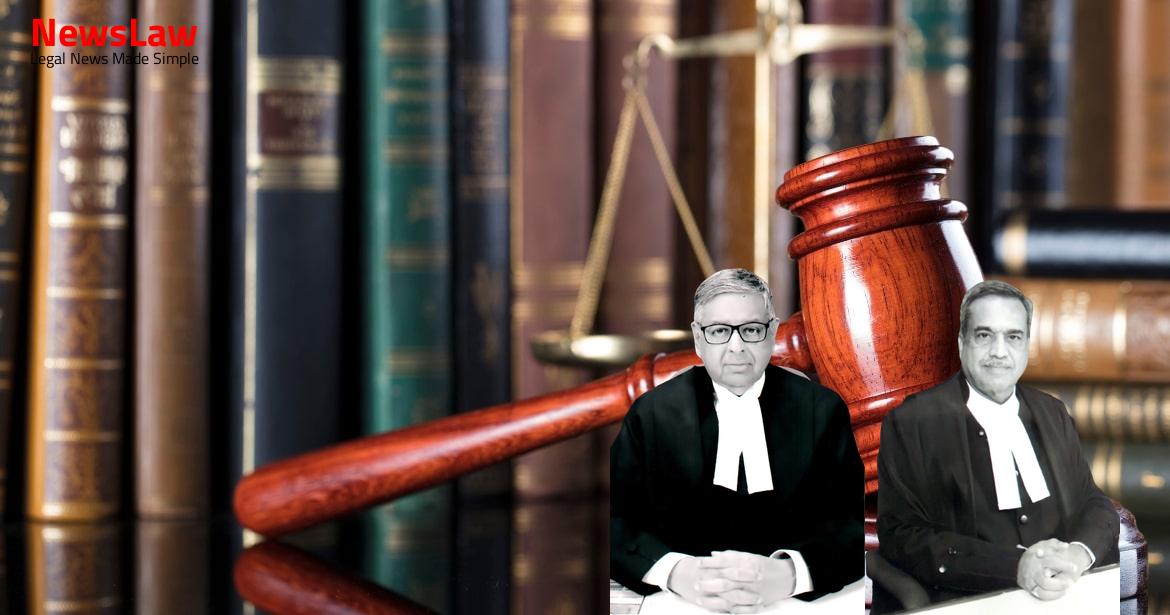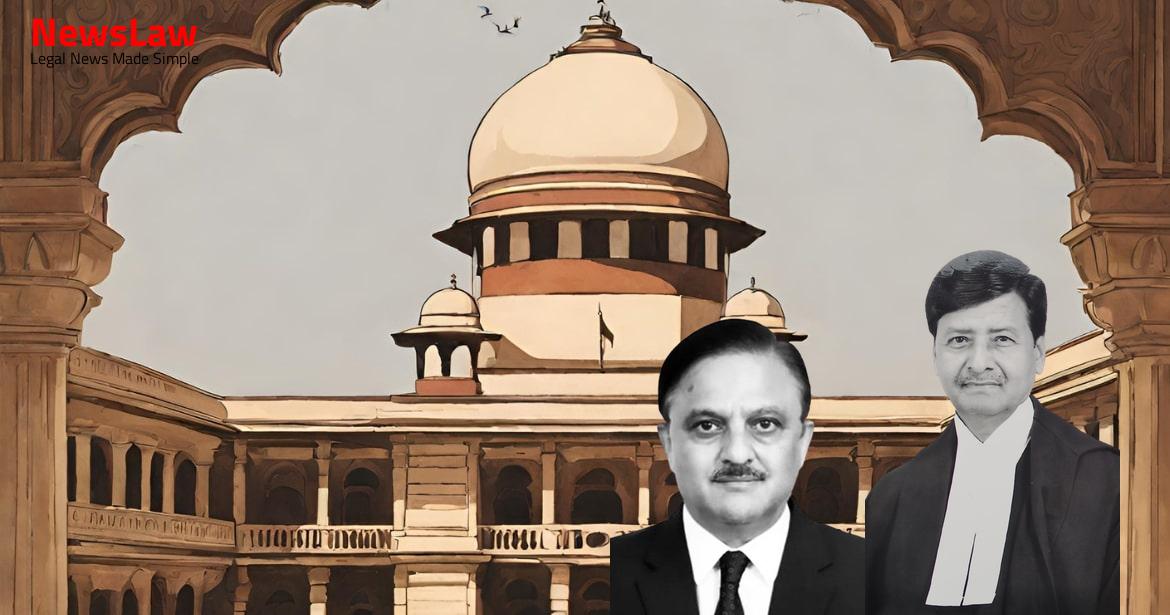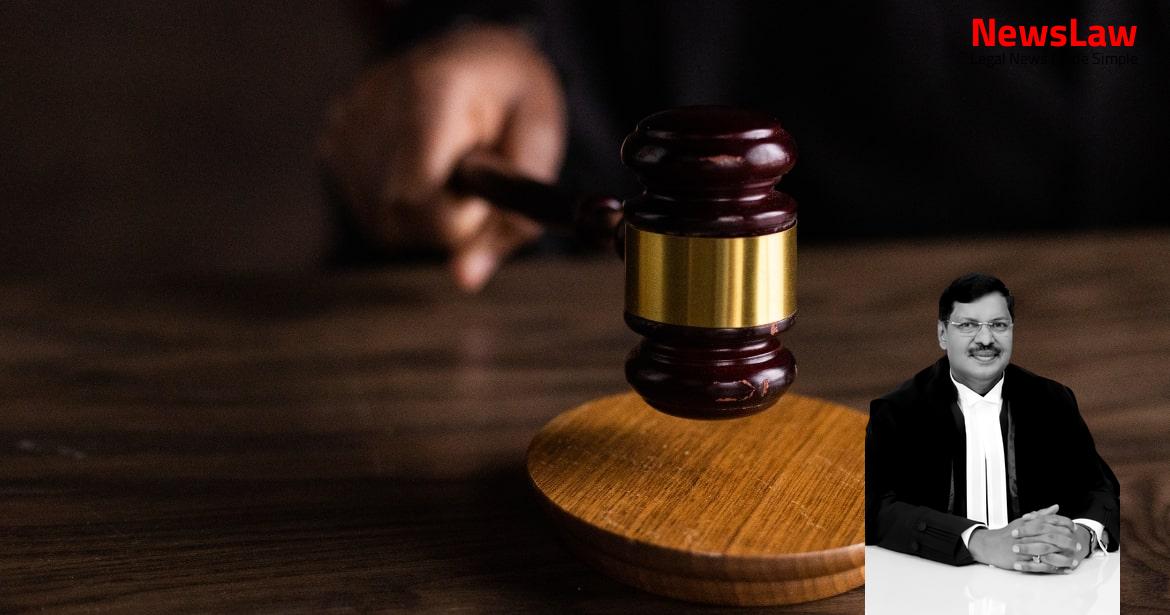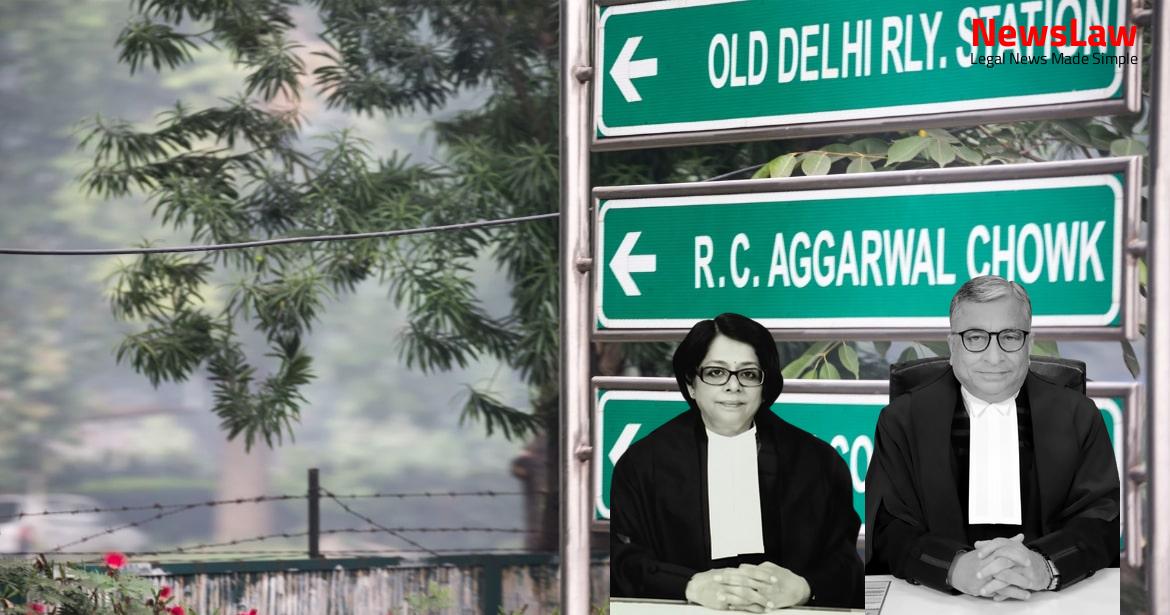In a recent legal case involving a custody battle, the court’s detailed legal analysis played a crucial role in determining the future of a minor child. The court’s focus on the child’s welfare and best interests highlighted the importance of considering various factors beyond just parental rights. This blog delves into the court’s reasoning and the legal considerations that shaped the final decision in the custody battle.
Facts
- Interim custody of the minor corpus was with the appellant until the final disposal of the writ petition.
- Both parents of the corpus passed away during the second wave of Covid-19.
- High Court granted custody of the minor corpus to respondent No 4, the maternal aunt.
- The paternal grandfather, the original writ petitioner, sought custody of the minor corpus.
- Appellant is not allowed to meet the corpus by respondent No 4.
- Expectation for respondent No 4 to allow paternal grandparents to meet the corpus at least twice a month.
- Petitioner directed to give custody of the corpus on 31st May, 2022.
- During the parents’ Covid-19 infection, the corpus stayed with respondent No 4, the maternal aunt.
- The High Court has determined that the welfare and best interest of the minor, Corpus-Pranav Rajesh Acharya, lies with the maternal aunt, Hemangini @ Mintu Madanmohan Shuryanvanshi.
- Custody of the minor has been awarded to the maternal aunt, respondent No 4.
- The High Court has instructed respondent No 4 to allow the paternal grandparents to meet the minor on a regular basis, preferably twice a month.
Also Read: Ruling on Circumstantial Evidence in Murder Case
Arguments
- The appellant, paternal grandfather, is seeking custody of his minor grandson who has lost both parents.
- The appellant is 71 years old and a retired government employee.
- The maternal aunt, respondent No 4, is a spinster in good health and capable of caring for the child.
- The High Court considered factors such as the aunt’s qualifications, employment, and the benefits of living in a joint family for the child’s development.
- The aunt has enrolled the child in a reputable school near her residence.
- No valid reasons were provided by the High Court for denying custody to the paternal grandparents.
- The appellant, despite being retired and living on a modest pension, is capable of caring for his grandson.
- The High Court did not provide findings to justify denying custody to the paternal grandparents.
Also Read: Challenging Legal Presumptions in Negotiable Instrument Cases
Analysis
- In cases of custody of a minor child, the paramount consideration is the welfare and interest of the child.
- The court must determine custody based on the best interests of the child rather than the rights of the parents.
- Factors such as the child’s age, gender, wishes, and overall well-being should be taken into account when deciding custody.
- The High Court’s decision to hand over custody to the maternal aunt was based on factors such as her younger age, government employment, and larger family, but these should not be the sole criteria for custody determination.
- The paternal grandparents, being retired, would likely have more time to care for the minor compared to a government employee like the maternal aunt.
- The minor has expressed a desire to stay with the paternal grandparents, indicating a preference that should be considered.
- During the interim custody period with the paternal grandparents, no concerns were raised regarding the care provided to the minor.
- Emotionally, grandparents are typically more attached to their grandchildren and likely to provide better care.
- Society still values the role of paternal grandparents in caring for their grandchildren.
- The paternal grandparents have taken steps to ensure the minor’s education in a school in Ahmedabad, showing their commitment to the child’s well-being.
- The present order is subject to the final outcome of the proceedings under Section 7 of the Guardians and Wards Act.
- The impugned judgment and order by the High Court, giving custody to the maternal aunt instead of the paternal grandfather, is unsustainable.
- The custody of the minor corpus should be handed over to the appellant – paternal grandfather.
Also Read: Legal Analysis of Admission Irregularities in Educational Institutions
Decision
- Paternal grandparents and maternal aunt & her family are requested to act jointly and cordially for the well-being of the minor, Pranav Acharya.
- There shall be no order as to costs in this case.
- The present appeal is allowed.
- All parties are urged to forget past bitterness and focus on the future for the sake of the minor, Pranav Acharya, who lost his parents at a young age.
- The proceedings are closed with the hope of better relations and a positive future for Pranav Acharya.
Case Title: SWAMINATHAN KUNCHU ACHARYA Vs. THE STATE OF GUJARAT (2022 INSC 639)
Case Number: Crl.A. No.-000898-000898 / 2022



